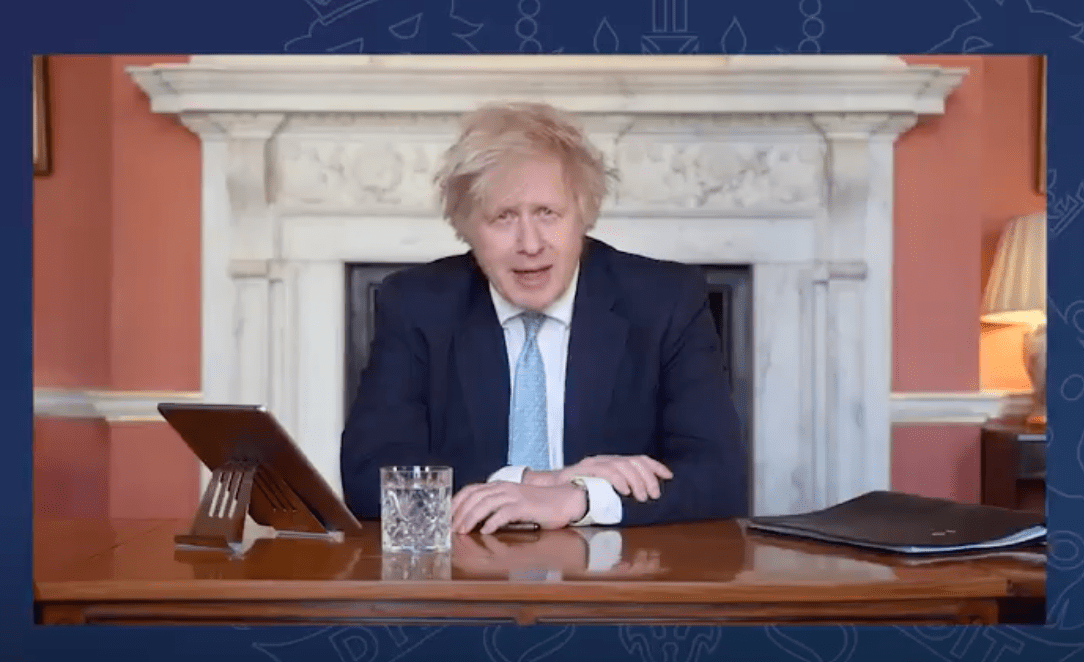How strange to have spent a year in a world where to hug someone outside of your household is not allowed. For the past five days, six people in England have been able to meet up outdoors again, but only in a socially distanced way.
Previously, the argument for crackdown on such instinctive human behaviour centred around hospitals being overrun. Today, the Covid data tells a very positive story, with infections, hospitalisations and deaths all down by 90 per cent or more since the most recent peak. Meanwhile, the right data is going up, with over half of the UK adult population having received at least their first dose of a Covid vaccine, and the top nine priority groups still on track to have been offered a first jab in less than two weeks’ time. So people are starting to ask: is it safe for a fully vaccinated gran to hug her vaccinated friend?
The government has decided to ramp up its cautionary rhetoric, which now includes coming dangerously close to talking down vaccines.
This question was pre-empted at Monday’s press conference, when Patrick Vallance and Chris Whitty added a new reason for the UK’s extremely cautious timeline out of lockdown: vaccine efficacy. ‘Vaccines are not 100 per cent protective’ Vallance noted in his slideshow, as one of the three reasons for staying ‘sensible as we unlock.’ Whitty reiterated the point, ‘that there will always be some people, who have either chosen not to be vaccinated, or where the vaccine has had much less effect.’
While both points were undoubtedly true, the emphasis seemed odd. When were we expecting a vaccine that’s 100 per cent effective? No one, including the Prime Minister, did. That we have vaccines that are estimated to have over 90 per cent efficacy (including the Pfizer vaccine, which has been widely used in the UK to cover the most vulnerable and elderly people) and roughly 100 per cent effective at preventing severe illness and death is perhaps the best scientific outcome we could have ever realistically imagined.
Yet today Johnson has doubled down on the talking point in an edited video released by No 10. In response to a question asking if it’s permissible to meet vaccinated friends and family members indoors, the Prime Minister shot the idea down, stating: ‘even though your friends and family members may be vaccinated, the vaccines are not giving 100 per cent protection, and that’s why we just need to be cautious. We don’t think they entirely reduce…or remove of transmission.’
Not only does this framing make the wildly successful vaccines on offer sound disappointing, but the logic leads to an extremely restricted future. The 100 per cent mark for preventing infection is an impossible standard: not even booster shots could be counted on to provide complete coverage.
It’s increasingly clear that the officials promoting this line don’t fully embrace it: as just this week Chris Whitty told the Royal School of Medicine that we will need to accept a certain level of Covid deaths in the future, to avoid shutting down parts of society and to allow people to live a ‘whole life’. Which very much involves hugs.
While reviews into social distancing, work, foreign travel and vaccine passports may significantly derail just how free we are this summer, the Prime Minister’s roadmap out of lockdown still encourages more activity than last year. No one seriously believes that two fully vaccinated people pose a big risk to each other, or that the fraction of the risk that might exist isn’t worth taking. So why, when all the Covid data is moving in the right direction, are officials doubling down on such a dubious point?
The new vaccine rhetoric comes across less like a strongly held belief, and more as a tactic to encourage people to obey lockdown rules in what is hopefully the last stretch of such onerous restrictions. As Katy Balls noted earlier in the week, the huge success of the vaccine rollout means his words of caution are baffling to some. Meanwhile, countries including the United States and Ireland have updated their guidance to reflect the vaccine factor: with both nations loosening the rules around fully vaccinated people interacting, without social distancing measures in place.
As the pressure ramps up to factor vaccines into the rules, it would appear the government has decided to ramp up its cautionary rhetoric, which now includes coming dangerously close to talking down vaccines. It’s a very short-term strategy with potentially huge consequences, especially for people who might be sceptical to take up the vaccine in the first place.
A more honest approach might even resonate with the public more: yes, vaccines work, but we want to be cautious regardless; we want to provide you with the greatest level of protection possible, which means vaccinating as many people as possible you might come into contact with; and we have no interest in creating a two-tiered society where people who haven’t been offered the vaccine yet can’t gather or interact in the same way as those who have. Vaccine efficacy is, so far, superb. But in general, the advice is still to be extremely careful.
For a public that has been broadly compliant with the rules for a year now, there’s good reason to think they’d oblige.







Comments